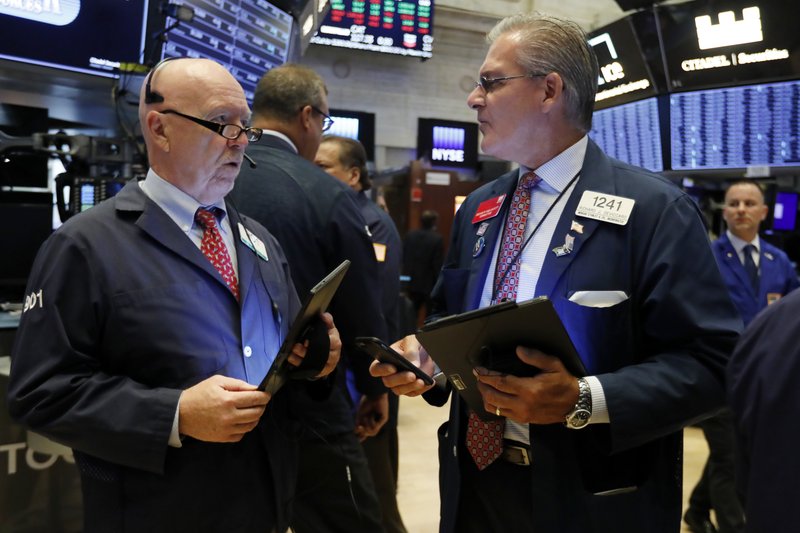Major U.S. stock indexes ended mixed Thursday after an early rally lost its strength toward the end of the day.
The S&P 500 managed to hold on to a tiny gain that extended its winning streak to a third day.
Gains in health care, technology, utilities and other sectors outweighed losses elsewhere in the market Thursday. Advancers outnumbered decliners on the New York Stock Exchange.
The S&P 500 index rose 0.06 point, or less than 0.1%, to 3,006.79. The Dow Jones industrial average gave up an early gain, sliding 52.29 points, or 0.2%, to 27,094.79. The Russell 2000 index of smaller company stocks also relinquished an early gain, losing 6.87 points, or 0.4%, to 1,561.47.
The Nasdaq index gained 5.49 points, or 0.1%, to 8,182.88.
Bond prices were little changed. The yield on the 10-year Treasury note held at 1.78%.
The market rallied in the early going as investors weighed a batch of encouraging economic reports. The positive data reinforces the outlook from the Federal Reserve, which projects slower economic growth but not a recession.
On Wednesday, the Fed reduced its benchmark interest rate for the second time this year in a bid to keep the economy from stalling in the face of slowing economic growth overseas and uncertainty over the U.S.-China trade war.
Fed officials were sharply divided in their outlook for future interest rate policy. As a result, the central bank didn't indicate clearly whether more rate cuts were likely this year. Still, Fed officials left the door open for additional rate cuts if the economy weakens.
"That's a nuanced message that markets are beginning to feel comfortable with," said Kate Warne, chief investment strategist at Edward Jones. "And the fact that the economic data today was a little better than expected is reassuring, as opposed to worrisome, in an environment where there's a lot of variation among voting members [of the Fed]."
Traders were encouraged Thursday by new economic snapshots, including data indicating U.S. home sales rose sharply last month and an index of manufacturing activity that came in ahead of analysts' forecasts. In addition, applications for U.S. unemployment aid edged higher last week, but still totaled less than what economists projected.
Recent data suggest the U.S. job market is solid, wages are rising, consumers are still spending and even such sluggish sectors as manufacturing and construction have shown signs of rebounding. Still, investors have been trying to gauge how the economy will fare during a slowdown in economies overseas and uncertainty over the trade war between the U.S. and China.
The Fed's outlook for the U.S. economy, and that of corporations, has been clouded this year as the trade conflict between the world's two biggest economies has escalated and several attempts at negotiating a resolution have failed.
Markets have rallied this month after the U.S. and China took steps to ease tensions in advance of talks next month. That has fueled speculation among investors that the two countries may at least reach an interim deal in their costly trade conflict.
"A lack of escalation or potential de-escalation would be something that would be viewed positively by the markets," said Bill Northey, senior investment director at U.S. Bank Wealth Management.
Washington and Beijing were set to begin trade talks Thursday ahead of more formal negotiations set for next month.
Meanwhile, France's finance minister said Europe is ready to impose retaliatory tariffs next year on U.S. goods as part of a long-running dispute over subsidies to plane-makers Airbus and Boeing.
Business on 09/20/2019

